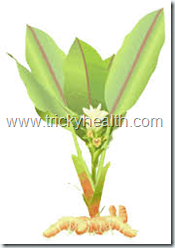OBSTRUCTIVE SLEEP APNEA
A disorder first explained in 1965 is a sleep disruption in which the person stops breathing for at least 10 seconds each hour during sleep. The occurrence of halts in breathing is called apneas, which literally means "without breath".
An apnea is a period during which breathing either terminates or is notably reduced. It is caused by winding down the throat muscles; the soft tissue at the back of the throat subsides and closes, resulting in choked airways. Several types of sleep apnea prevail, but the most familiar type is “obstructive sleep apnea”.
The most distinguishable sign of obstructive sleep apnea is snoring. Anyone can develop obstructive sleep apnea, although it mostly affects middle-aged and older adults and people who are obese.
An apnea is a period during which breathing either terminates or is notably reduced. It is caused by winding down the throat muscles; the soft tissue at the back of the throat subsides and closes, resulting in choked airways. Several types of sleep apnea prevail, but the most familiar type is “obstructive sleep apnea”.
The most distinguishable sign of obstructive sleep apnea is snoring. Anyone can develop obstructive sleep apnea, although it mostly affects middle-aged and older adults and people who are obese.
A symptom is something the patient experiences and reveals, while a sign is something other people, such as the medical practitioner recognize. For example, an ache may be a symptom while a rash may be a sign.
1) Patients may feel exceedingly sleepy during the day, sleep is discomposed, there is customarily snoring which may be noisy, during sleep there will also be periods of silence where no breathing exists and then gasps.
1) Patients may feel exceedingly sleepy during the day, sleep is discomposed, there is customarily snoring which may be noisy, during sleep there will also be periods of silence where no breathing exists and then gasps.
2) Less frequently, the sick person may maybe distressed from insomnia, morning headaches, moodiness and anxiety, poor concentration, irritability, and depression.
3) Blood pressure time and again advance (hypertension), weight may scale-up, increased urination and waking up at night to urinate (nocturia).
4) Some sufferers complain of heartburn.
5) A remarkable number of patients wake up during the night with a dry mouth/throat.
5) A remarkable number of patients wake up during the night with a dry mouth/throat.
6) Uncontrolled daytime drowsiness.
7) Morning headaches.
8) Weakened emotional or psychological functioning.




